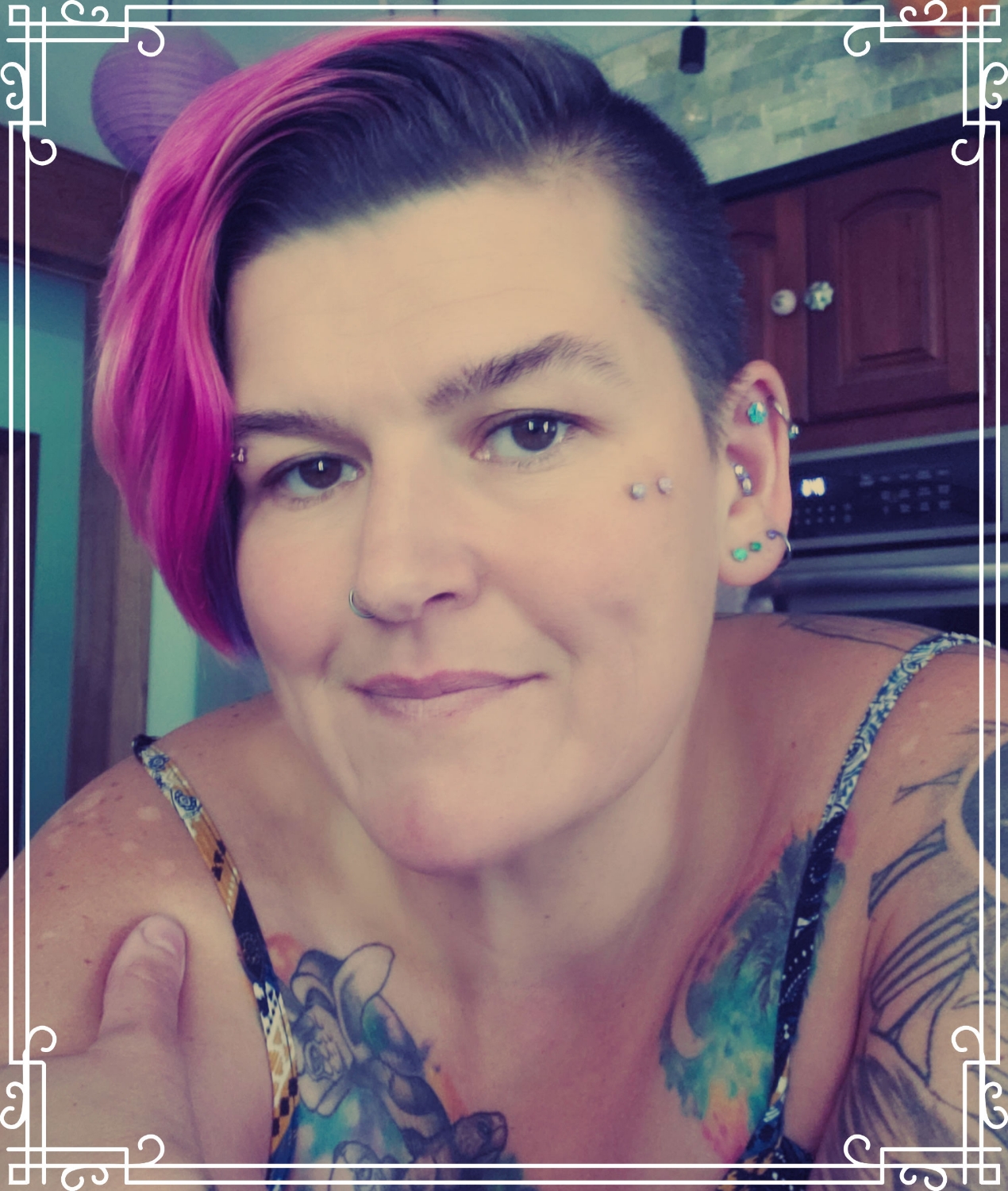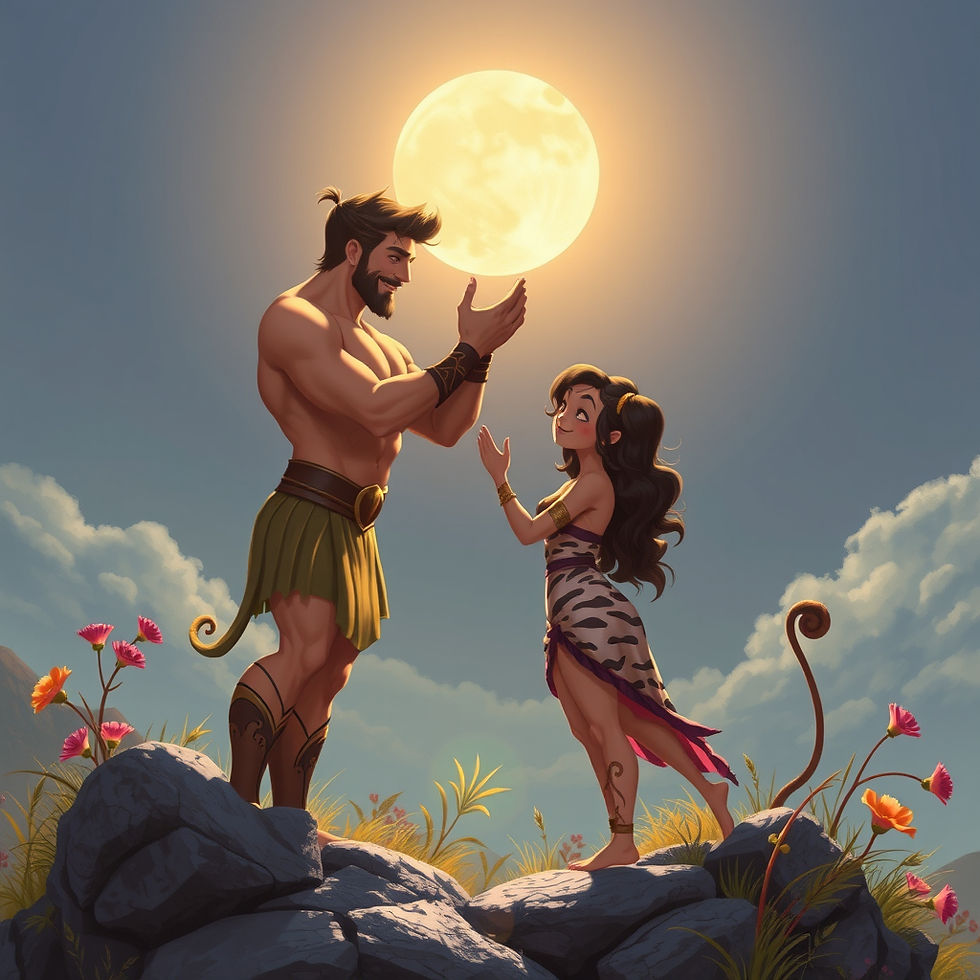Megara’s Moonflower — Love as Sacred “Weakness”
- Madame Gin

- Sep 13, 2025
- 4 min read
We live in a culture that mistrusts love. We’re taught to fear it, to harden against it, to treat it as vulnerability that will surely lead to heartbreak. We praise independence, self-sufficiency, invulnerability.
But sometimes Spirit slips in through story — even through Disney animation — to remind us of deeper truths.
In Hercules (1997), there’s a scene where Megara, the sharp-witted, sarcastic heroine, stands holding a white flower under the moonlight. Hades looks at her, smirks, and realizes something: Hercules, for all his godlike strength, has one weakness. Love.
And I’ve carried that scene for years because, let’s be honest, I’ve lived it. I’ve carried the vow that said: “Don’t get too close. Love will break you. Vulnerability will be your downfall.”
But what if love is not weakness? What if love is gravity — the strongest force in the universe?

Storytelling: A Flower in the Dark
I remember watching Hercules as a young mother, kids piled on the couch with me. Megara sang her song — “I won’t say I’m in love” — with defiance. And I thought, same girl, same.
But that later moment, with the moonflower glowing in her hand, pierced me. It was cinematic shorthand: fragile petals in the night, love glowing in the dark, Hercules’ armor pierced not by sword, but by affection.
And it landed. Because I had always believed love made me weak. That to care was to give people weapons against me. That my strength was in independence, not connection.
And yet here was Spirit whispering through pop culture: love is the only thing strong enough to undo even gods.
Psychology: Vulnerability as Courage
Psychology gives us language for this.
Brené Brown’s research on vulnerability shows: what we call weakness is actually courage. To risk love, to risk rejection, to risk being known — that is the bravest act.
Our nervous systems are wired for attachment. Babies die without touch. Adults shrivel without intimacy. Loneliness is as deadly as cigarettes.
So why do we frame love as weakness? Because vulnerability exposes us to risk. But resilience is not found in isolation. It is forged in connection.
Love doesn’t make us fragile. Love makes us human.
Philosophy: Love as Gravity
Philosophers have wrestled with love for millennia.
Plato saw eros (desire) as a ladder leading us toward the divine.
Augustine framed agape (divine love) as God’s nature itself.
Nietzsche called love a creative force, reshaping life.
Love is not weakness. Love is gravity. It pulls us into orbit with one another. It holds galaxies together. It is invisible, but undeniable.
To call gravity weakness would be absurd. To call love weakness is just as wrong.
Spirituality: Love as Cosmic Force
Mystics across traditions agree: love is not just emotion. It is fabric.
Hildegard of Bingen called it caritas, divine love infusing creation. Rumi wrote, “Love is the bridge between you and everything.” Hindu scriptures speak of bhakti, devotion that dissolves separation between self and God.
Love is the current that carries us back to Source.
The moonflower in Meg’s hand wasn’t fragile ornament. It was symbol: love glowing even in darkness, unstoppable as gravity.
Parapsychology: Soul Contracts
Parapsychology gives another lens: soul contracts. We incarnate with agreements to love certain people — not because it’s easy, but because love cracks us open to growth.
Those we love most deeply often catalyze our greatest transformation. Love feels dangerous because it is powerful. It unravels us so we can be remade.
Megara’s moonflower wasn’t about weakness. It was about soul destiny.
Cosmology: Love as Structure
Cosmology reveals that the universe itself is relational. Matter attracts matter. Stars cluster. Galaxies spin together. Gravity is the architecture of love.
Love structures existence. Without it, everything flies apart.
So, when Hades sneers that love is weakness, the cosmos itself disagrees. Love is the structure holding the whole show together.

Side Stories & Everyday Love
Money: Love is generosity. We invest not because we must, but because we care. Generosity builds abundance more than hoarding ever will.
Parenting: Love makes parents both vulnerable and fierce. Children expose our softest underbelly and ignite our strongest defenses.
Romance: To love after heartbreak feels terrifying. But the willingness to risk again is the definition of courage.
Community: Love powers movements. People don’t march for abstractions; they march for people they love.
Integration Practices
Moonflower Ritual: Place a flower on your altar. Whisper: “Love is my strength.” Watch it wilt naturally, knowing endings don’t erase the glow of love.
Journal Prompt: Where have you called love weakness? How has love actually been your greatest teacher?
Practice Vulnerability: Tell one person something tender this week. Notice how it feels not to hide.
Witness Contract: Reflect on a soul contract in your life — a relationship that cracked you open. Write what it taught you.
Conclusion
Megara’s moonflower still glows in my memory because it told me the truth I most needed: love is not weakness. Love is the force that makes gods human and humans divine.
The culture says armor is strength. Spirit says tenderness is strength. The cosmos says gravity — love — is what keeps it all together.
So don’t apologize for your love. Don’t shame your softness. Don’t mistake vulnerability for fragility.
Because love is not the chink in your armor.
Love is why you put the armor down and live with your whole heart.




Comments